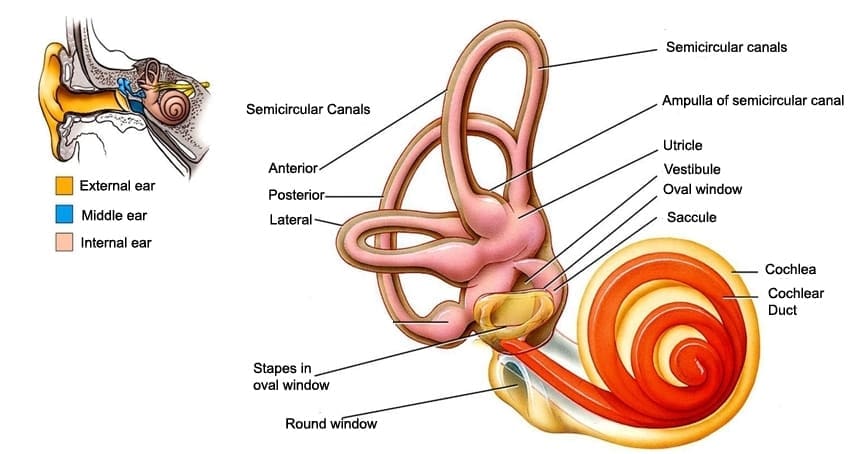By Jack Rogers, Chiropractor
Benign paroxysmal positional vertigo (BPPV) is a very common cause of vertigo — the distinct sensation that you’re spinning or that the inside of your head is spinning.
BPPV occurs when tiny calcium crystals come loose from their normal location on the utricle, a sensory organ in the inner ear. If the crystals become detached, they can flow freely in the fluid-filled spaces of the inner ear, including the semicircular canals (SCC) that sense the rotation of the head. The movement of the crystals in these canals give us a false sense that our head is rotating.

BPPV results in fleeting dizzy episodes of mild to moderate intensity . It is usually triggered by position changes of the head. This might happen when you lift your head up or down, when you lay down or sit up, or roll over in bed.
Although BPPV can be troublesome and make us feel anxious, it’s rarely serious except when it elevates our risk of having a fall. You can receive effective treatment for BPPV during a doctor’s office visit.
Signs & Symptoms
The signs and symptoms of benign paroxysmal positional vertigo (BPPV) may include:
- Dizziness
- A sense that you or your surroundings are spinning or moving (vertigo)
- A loss of balance or unsteadiness
- Nausea
- Vomiting
The signs and symptoms of BPPV can come and go and usually normalize in around 30 seconds. Episodes of BPPV can disappear for some time and then recur.
Activities that result in BPPV symptoms vary from person to person, but are almost always result from a change in head position, such as when rolling over in bed. Some people also feel unbalanced when standing or walking.
Abnormal rhythmic eye movements (called nystagmus) usually accompany BPPV symptoms.
How Do I Fix It?
Fortunately, our practitioners at Pinnacle Spine & Sports are trained to diagnose and treat BPPV. The Epley’s manoevuer is proven to quickly and gently remove crystals from the inner-ear canals, reducing BPPV symptoms rapidly.
When to see a doctor
Generally, see your doctor if you experience any recurrent, sudden, severe, or prolonged and unexplained dizziness or vertigo.
Seek emergency care
Although it’s uncommon for dizziness to signal a serious illness, see your doctor immediately if you experience dizziness or vertigo along with any of the following:
- A new, different or severe headache
- A fever
- Double vision or loss of vision
- Hearing loss
- Trouble speaking
- Leg or arm weakness
- Loss of consciousness
- Falling or difficulty walking
- Numbness or tingling
The signs and symptoms listed above may signal a more serious problem.
If you’re unsure about your symptoms, or whether our treatment may be beneficial for you, please don’t hesitate to get in touch with us as soon as possible. We’d love to do what we can to help you.

References:
https://www.hopkinsmedicine.org/health/conditions-and-diseases/benign-paroxysmal-positional-vertigo-bppv#:~:text=BPPV%20occurs%20when%20tiny%20calcium,the%20rotation%20of%20the%20head.https://www.mayoclinic.org/diseases-conditions/vertigo/symptoms-causes/syc-20370055
